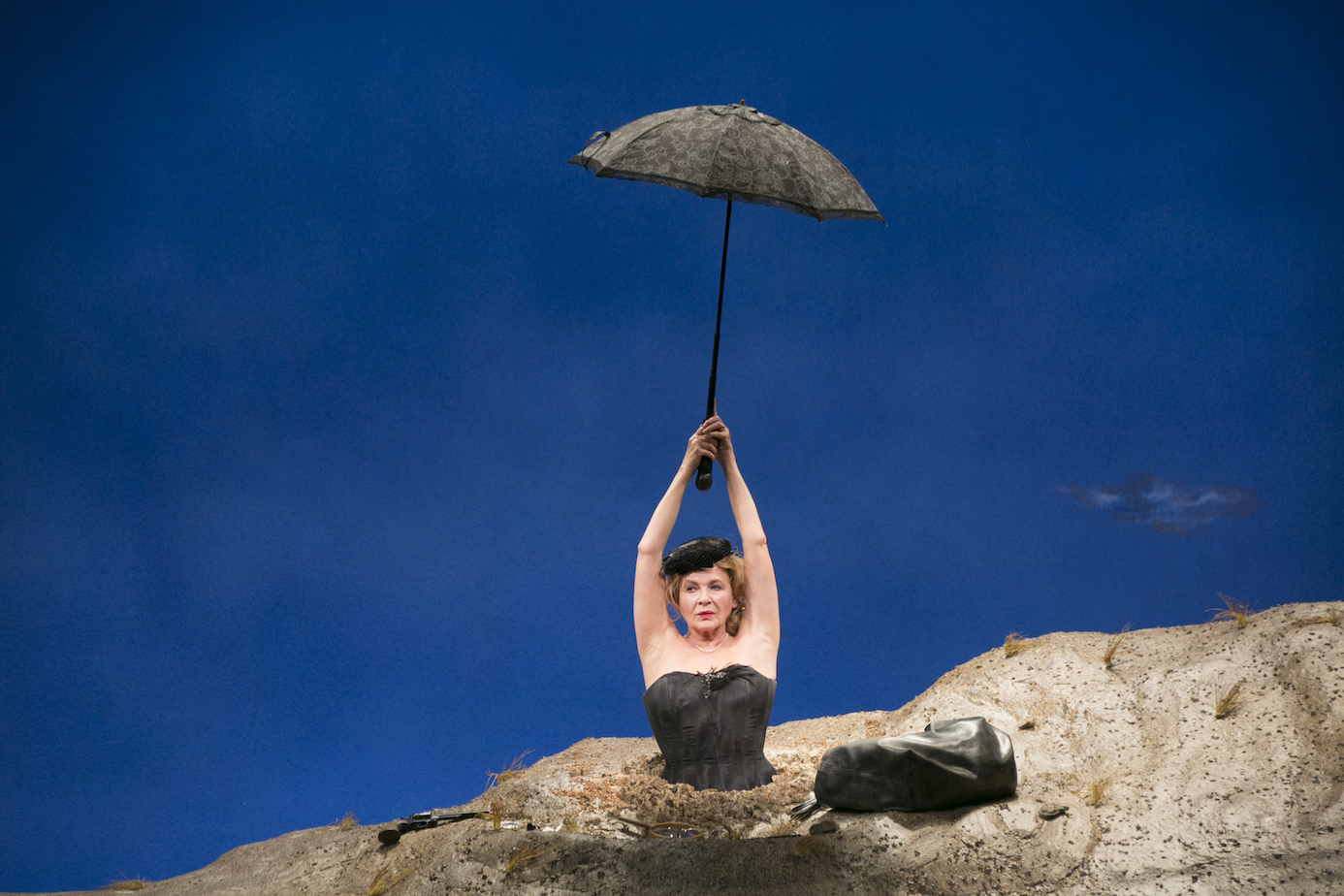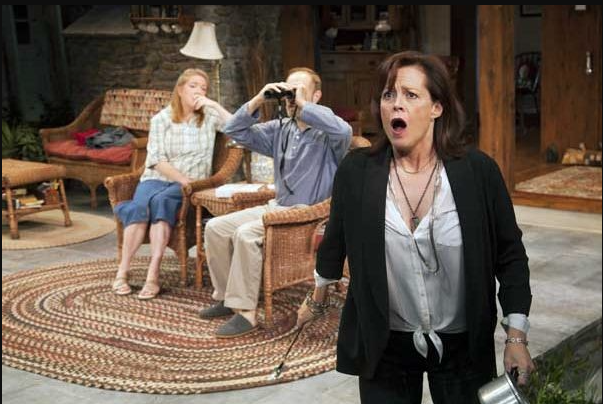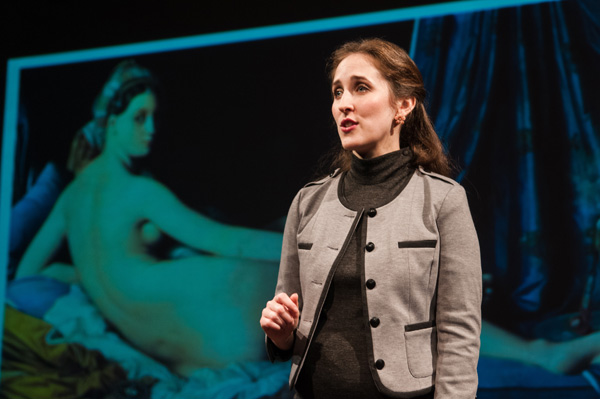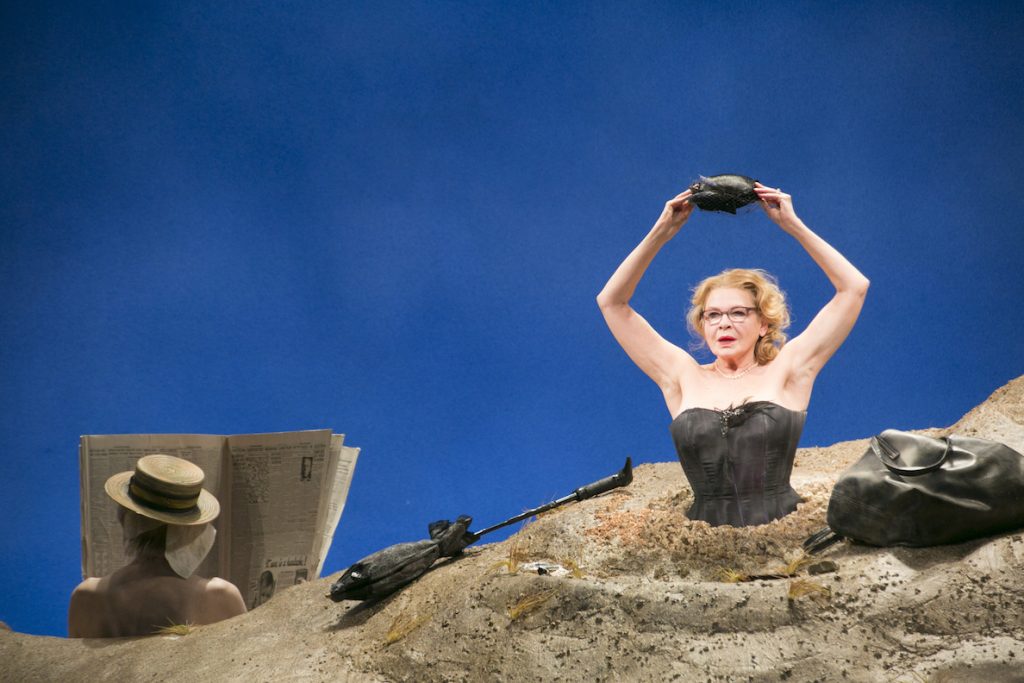

by JK Clarke
Even buried up to her neck in dirt, Dianne Wiest can act circles around most other thespians. A wild assertion, but one that’s readily demonstrated in Yale Repertory Theatre’s revival of Samuel Beckett’s simultaneously amusing and bleak Happy Days, now playing through May 21, presented by Theatre for a New Audience at the Polonsky Shakespeare Center in downtown Brooklyn. A head-scratcher of a play, Happy Days makes Beckett’s chef d’oeuvre Waiting For Godot look straightforward and easily decipherable. Despite its drawn-out and meandering purpose, it is known, as Wiest recently told The New Yorker, as “the Hamlet for actresses.” If that’s so, then Wiest is Olivier.
For all intents and purposes, Happy Days is a two hour soliloquy that opens with our heroine Winnie (Wiest) buried to the waist in a large mound of earth, looking like a damsel in a black bustier (costumes: Alexae Visel) emerging from the side of a baked potato. A gorgeous blue sky draped in a light fog (Izmir Ickbal’s simple but effective scenic design) makes one occasionally lapse into thinking she and Willie (Jarlath Conroy)—to whom she frequently calls out, but who rarely speaks back—are at the seaside enjoying a summer day. And why not? Winnie is more cheerful than anyone buried in the dirt, even for the briefest of time (and there’s every indication she has been here for quite a while), has a right to be. She’s the Candide of the mound: “It is a happy day,” she chirps, having made a small new (or forgotten) discovery in her personal belongings, which are her whole world. She echoes the hero of Voltaire’s satire who constantly declares, amidst utter chaos, that “all is for the best.”
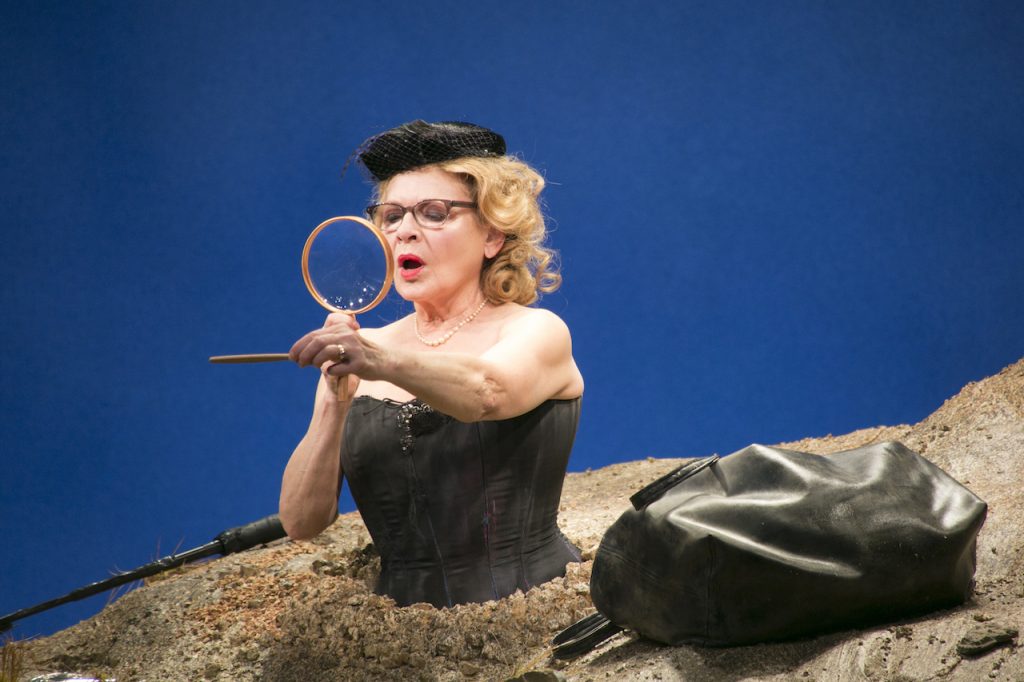

Winnie’s cheerfulness is doubly ironic in Wiest’s hands, for the physical challenges of standing in one spot for the entire performance would be utterly torturous for an actor even half her 69 years. But you’d never know it (and as a result of her work with movement coach Jessica Wolf), as Winnie emerges in the second act, when the ominous, omnipresent and unpleasant bell blasts her awake with staccato fury only to find her now buried to her neck! More challenged than before and disappointed for not being able to rummage through her large leather satchel of (mostly) junk and unfurl her pretty parasol to protect her from the sun’s brutal rays, Winnie still sings out, “Wee-lee! My wee-lee!” She’s searching for her partner, but sadly can no longer see him and fears he may have been dragged off or died in the night. She is plagued by doubt, and frets “Not to know. Not to know for sure.” But Wiest, whose soothing, musical voice practically sings every word, seems to nonetheless reassure us that she’s continuing to make the most of a horrifying situation.
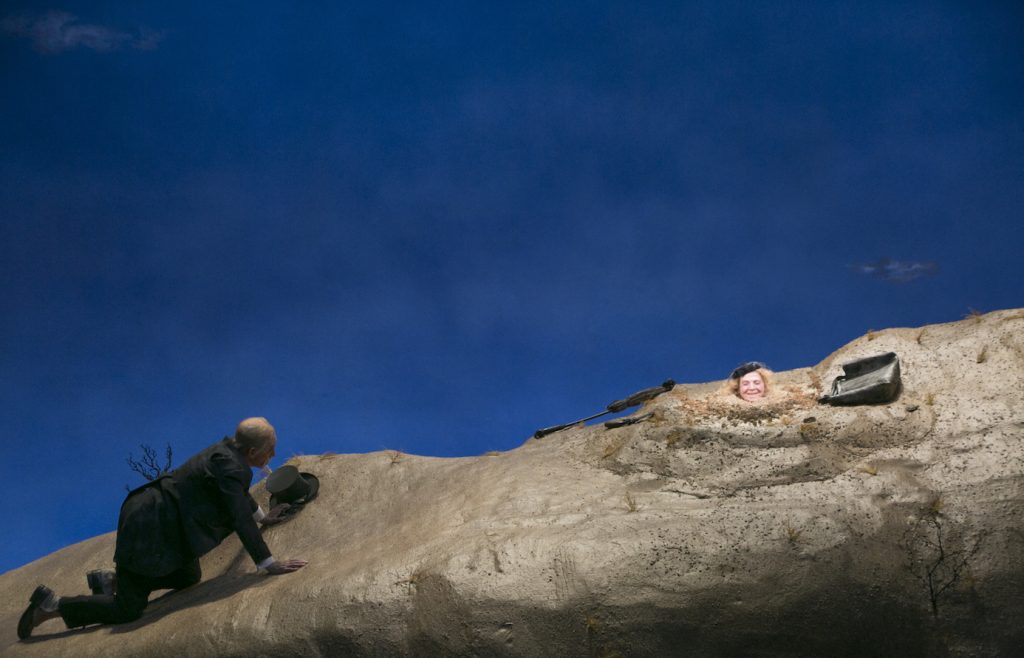

Happy Days is a challenge in that it doesn’t weather the test of time as well as Beckett’s better known works. Contemporary audiences lack the patience and are less inclined to the experimental, Absurdist nature of the piece because concept lacks freshness, the dialog is only compelling because of her circumstance (and wouldn’t be otherwise) and the story arc provides no real answers: who is she; why is she there; how long has she been there; and what ultimately happens? It’s allegorical, to be sure, but, oddly enough, lacks roots. Not only are Winnie and Willie untethered in time, place and circumstance, but so is the audience. Because she’s so damned cheery it’s hard to feel anything beyond an affinity for her sweet nature, and that’s established right away. We don’t have enough information to decide whether to fear for her or understand that she’s perhaps earned her way into this position. Is this earth, hell or otherwise? Who knows. All fine, of course, if we’re given enough information to contemplate, but we just aren’t.
No matter, for this is a Wiest workshop, or showcase if you will (craftily helmed by director James Bundy) and that’s more than enough. It’s an absolute treat to watch her work through Winnie’s difficulties (especially whilst knowing that she’s struggling through her own physical challenge in performing the piece), smiling and making the most out of what is unquestionably a very, very bad situation: “I used to pray. Not now,” Winnie eventually shares. Clearly what Beckett was pointing out—that there are people all over the world, particularly women (“who could cope with that and go down singing,” the playwright once said, “only a woman”) suffering through unbearable circumstances all the while maintaining a rosy, downright cheerful exterior. It’s people like them (Wiest in particular) who make the uncomfortable tolerable. And it’s a delight to watch her do it.
Happy Days. Through May 21 at Theatre for a New Audience’s Polonsky Shakespeare Center (262 Ashland Place, downtown Brooklyn). www.tfana.org
Photos: Gerry Goodstein


